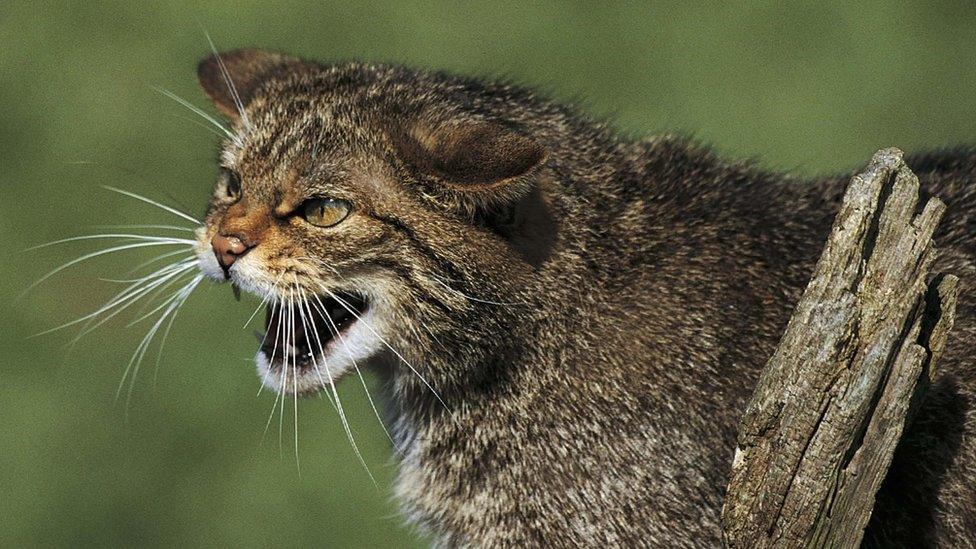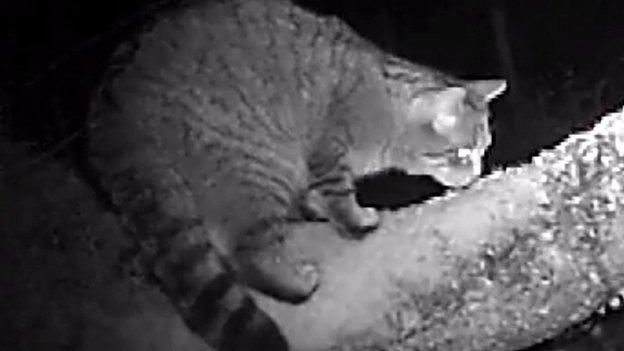Wildcat or not? Catty rivalry between conservation groups
- Published

A bizarre public spat has re-emerged between two rival conservation groups over a video of a Scottish wildcat.
The two organisations have different and long-held views on how the rare animals should be protected.
The most recent disagreement began on Wednesday when Wildcat Haven released a video of a 'pure' wildcat which they said had been filmed near Huntly in Aberdeenshire.
They suggested its purity had been verified by an independent expert at the National Museums of Scotland and that it was the first living wildcat to score full marks on an observation scale which determines its purity.
The 21-point scale is a recognised measure of how much a wildcat has become hybridised with domestic cats.
Rival group Scottish Wildcat Action (SWA) immediately sought to discredit the claim saying it was "not news" to them that a pure wildcat had been found and that the one in the video is "extremely similar" to one they have already identified.
Wildcat Haven said the "pure" wildcat was filmed in Aberdeenshire
At this point it looked like both sides were in agreement that what had been filmed was actually a pure wildcat.
But then on Thursday Scottish Wildcat Action released a second video, external which was captured in the same area in December.
It now appeared to question whether the cat in both videos was actually a "pure" wildcat at all.
Dr Andrew Kitchener from the National Museums of Scotland said: "Wildcat Haven approached me to comment on [Wednesday's] video footage, which shows one cat in the wild. The animal displays a number of characteristics of the Scottish wildcat, however not all of the characteristics which are used to identify the Scottish wildcat are visible in the video.
"While the cat in this video shows a high number of characteristics of the Scottish wildcat, there is not yet sufficient evidence to fully determine its purity."
So why the apparent shift in position from Scottish Wildcat Action?
It would appear to stem from the implied criticism that SWA is involved in a project to breed and then release wildcats which contain a small degree of hybridisation with domestic cats.
Feral cats
Wildcat Haven believes that policy poses an even greater threat to populations of the pure animal and said the "discovery" of a pure wildcat showed they could still be saved.
It wants to create protected havens for them to expand naturally.
Scottish Wildcat Action is backed by the Scottish government and describes itself as the "official wildcat conservation project."
Its rival organisation, Wildcat Haven, is independently funded.
Both have been involved in projects, sometimes in the same areas, to capture, neuter and release feral cats which live alongside wildcat populations.
Last year the two groups clashed over a protocol document which showed gamekeepers are permitted to shoot feral cats caught in traps.
Wildcat Haven said there was a risk that a genuine wildcat could be misidentified and killed.
- Published16 August 2017
